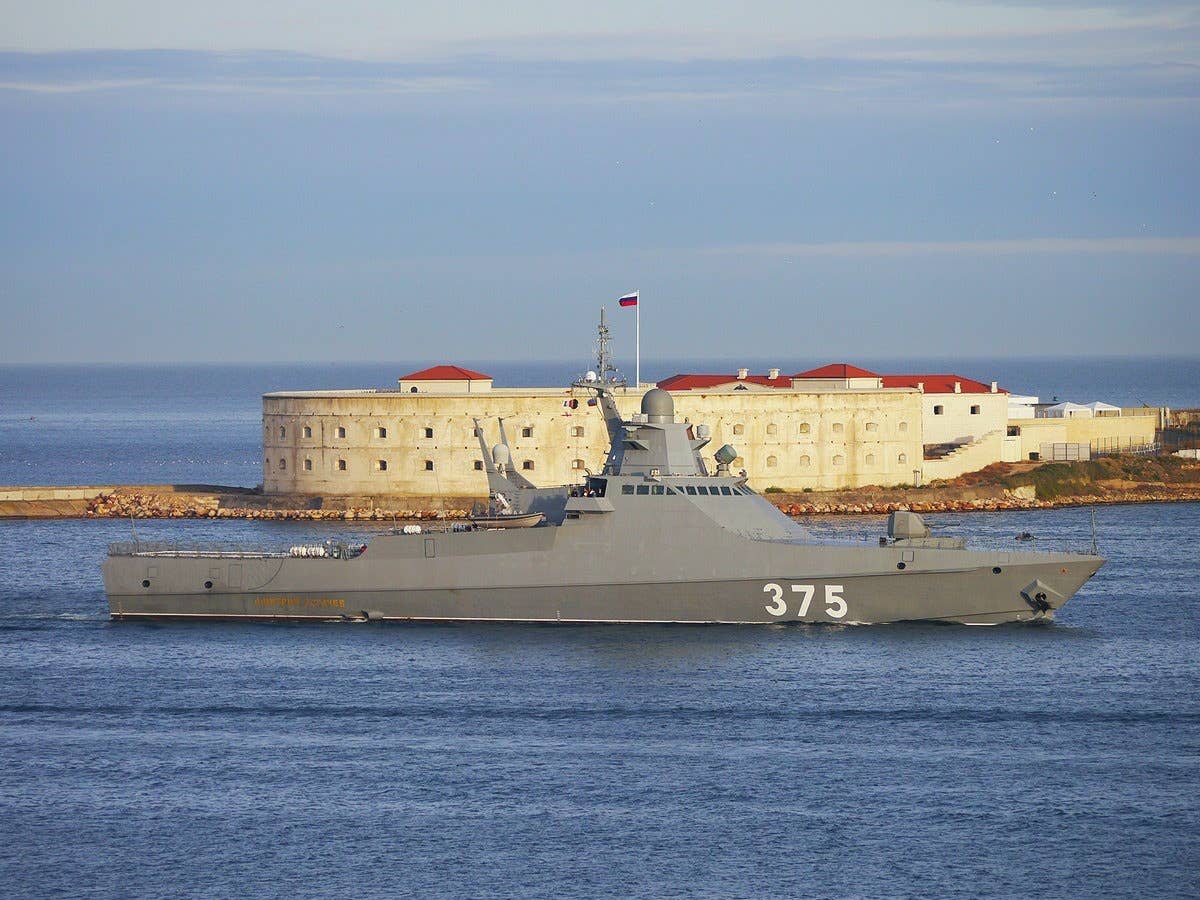After the Black Sea Grain initiative ended, Russia has taken steps to reposition its Black Sea Fleet, which could lead to increased tensions and the possibility of escalated violence in the region, according to the UK Defense Ministry.
Latest Defence Intelligence update on the situation in Ukraine – 26 July 2023.
Find out more about Defence Intelligence's use of language: https://t.co/eqGEfaCnrU
🇺🇦 #StandWithUkraine 🇺🇦 pic.twitter.com/RtJT97YzAT
— Ministry of Defence 🇬🇧 (@DefenceHQ) July 26, 2023
In the latest daily assessment on July 26, UK Defense Ministry reported that Russia’s recent withdrawal from the Black Sea grain export deal has led to significant changes in the operational readiness of its Black Sea Fleet.
Specifically, the fleet “has altered its posture since Russia pulled out of the Black Sea Grain Initiative in preparedness to enforce a blockade on Ukraine.”
On July 17, Moscow announced its withdrawal from the Black Sea Grain Initiative, which was scheduled for its fourth renewal. This initiative has been instrumental in facilitating the secure export of Ukraine’s vital grain and agricultural products to global markets.
Shortly after the termination of the deal, the Russian Ministry of Defense asserted that it would view any ship heading for Ukraine as a potential carrier of military cargo, thereby implying that commercial vessels could be subject to targeting.
In response, Ukraine’s Defense Ministry announced on July 20 that it might consider all ships in the Black Sea heading to Russian ports and the occupied regions in Ukraine as potential military cargo vessels.
As per the British Defense Ministry, Russia’s modern corvette Sergey Kotov has been dispatched to the southern Black Sea to patrol the shipping route from the Bosphorus to Odesa.
This is the same Russian warship that the country’s Ministry of Defense alleged to have neutralized Ukrainian uncrewed surface vessels (USVs) allegedly involved in attacks against it on July 25.
Sergey Kotov is a Project 22160 large patrol ship, and it is one of four of these highly modern vessels that are currently in active service with the Black Sea Fleet.
The UK MoD said there is a tangible likelihood of it being incorporated into a task group assigned to intercept commercial vessels Russia believes are en route to Ukraine.
The termination of the grain deal has previously acted as a mitigating factor in the Black Sea conflict, but the intelligence report now suggests a worrying possibility of increased intensity and broader ramifications of violence in the area.
On July 25, in a separate intelligence assessment, the British Defense Ministry alleged that since July 18, Russia had intensified its assaults on Odesa and the port infrastructure in the southern region of Ukraine following their decision to exit the grain deal.
Why Did Russia Quit Black Sea Grain Initiative?
The Black Sea Grain Initiative was crucial in preventing a potential catastrophe. When Turkey and the UN facilitated the deal in July 2022, it was hailed by Guterres as a “beacon of hope.”
Under this agreement, three Ukrainian Black Sea ports—Odesa, Chornomorsk, and Pivdennyi (formerly Yuzhny)—were authorized to export commercial food and fertilizer.
To ensure compliance and smooth operations, representatives from all participating parties (Ukraine, Russia, Turkey, and the UN) conducted inspections of ships entering and leaving these ports.
Once loaded with cargo, the vessels followed a predefined route through the Black Sea, avoiding mined areas, on their way to Istanbul.
The Western sanctions never imposed restrictions on Russia’s grain and fertilizer exports. However, as part of the Black Sea Grain Initiative, Russia received additional guarantees that its agricultural and fertilizer products would remain exempted from any sanctions.
In the past, Moscow had previously withdrawn from the Black Sea Grain Initiative in October last year following an attack by Ukraine on a Russian naval base.

During this period, Ukraine, in collaboration with the UN and Turkey, continued the transportation of grain using the sea routes despite Russia’s absence from the deal.
After a few days, Russia reengaged with the initiative, stating that Turkey and the UN had obtained satisfactory assurances from Kyiv that the sea corridors would not be utilized for military purposes.
However, some Western analysts suggest that Russia’s latest withdrawal from the Black Sea Grain Initiative may be a strategic move to use its participation in the deal as a bargaining chip to secure additional sanctions relief.
The US-based Institute for the Study of War (ISW) think tank recently released an assessment stating that the Kremlin perceives the Black Sea Grain Initiative as one of its last remaining means of exerting leverage against Western nations.
By withdrawing from the deal, Russia aims to secure certain concessions from the international community. The ISW further highlighted that in response to its departure from the agreement, the Kremlin appears to be trying to create a sense of urgency around its potential return to the Black Sea Grain Initiative.
This is done through intensified strikes on Ukrainian ports and grain infrastructure and by issuing threats to target civilian ships in the Black Sea. These actions suggest an escalation in tensions and pose significant risks to the region’s maritime trade and civilian safety.
- Contact the author at ashishmichel(at)gmail.com
- Follow EurAsian Times on Google News